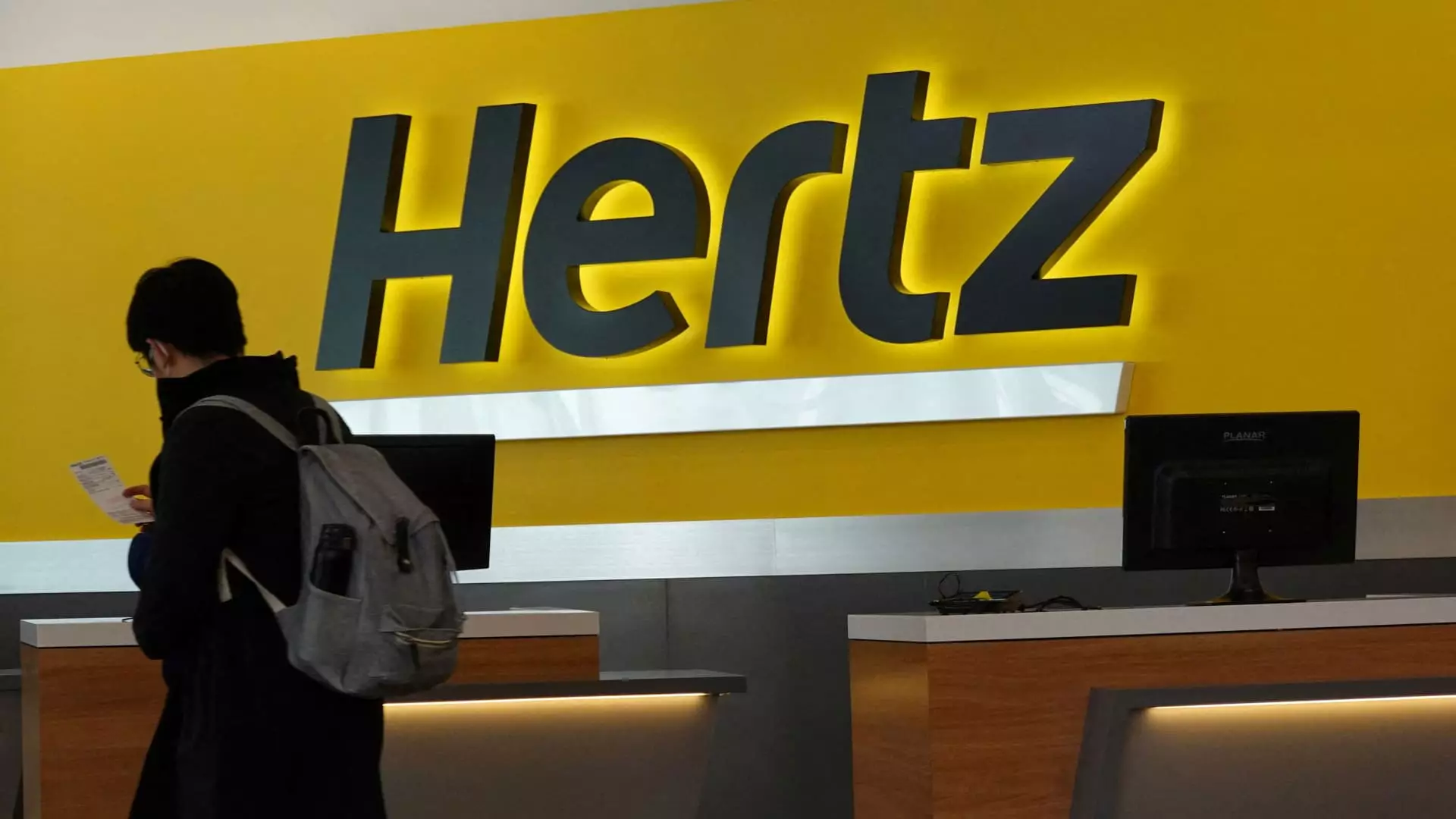The recent upheaval surrounding Hertz Global Holdings is a stark reminder of how delicate the balance is for companies operating in a fiercely competitive industry. Following disheartening Q1 earnings that quite frankly shocked investors, the rental car giant saw its stock plummet nearly 17% in a single day. Such a drastic drop reflects more than just disappointing figures; it highlights a fundamental disconnect between corporate strategy and market realities. The reported loss per share of $1.12, considerably worse than the anticipated loss of 97 cents, coupled with a revenue shortfall of $1.81 billion against expectations of $2 billion, paints a dismal picture.
It becomes painfully clear that Hertz is not only grappling with internal inefficiencies but also dealing a hand laden with external pressures. The announcement of a $250 million stock offering aimed at deleveraging hardly instills confidence. Instead, it raises questions about the underlying health of a company that has been a household name for decades. For many investors, this was less of a strategic recalibration and more of a desperate plea for liquidity amidst a troubling fiscal landscape.
Raising Red Flags: Internal and External Challenges
Beyond the disappointing earnings report, the decision to slim down fleet offerings symbolizes a misguided attempt to cope with declining consumer demand and increasing production costs rooted in auto tariffs. Hertz’s plan to scale back available rentals sends a disconcerting signal at a time when tourists are tentatively returning to travel and leisure. With dwindling fleet capacity down 8% from the previous year, Hertz’s initiatives to “prune revenue” while enhancing vehicle utilization seem counterintuitive. Can a business thrive by offering fewer choices? This pivot appears to be self-sabotage in the face of a recovering economy.
Moreover, the broader economic repercussions of lower consumer sentiment are tangible. Hertz isn’t unique in its challenges, but its strategies seem to lack foresight. A reactive approach to short-term profitability, as heralded by CEO Gil West, overlooks the critical need for innovation and market responsiveness. The situation calls for more than just slashing and burning; it demands strategic pivots that anticipate consumer needs rather than react to economic pressures. Clearly, Hertz has articulated ambitious long-term goals, such as optimizing vehicle utilization, but the disconnect between these aspirations and current realities is alarming.
Market Interpretations: Analysts Weigh In
The response from analysts has been telling, with Barclays’ Dan Levy categorizing the overall result as “net negative.” In a market that had previously seen optimism following a 90% stock surge, the sobering turn certainly throws cold water on exaggerated hopes. Yes, the growth attributed to Bill Ackman’s significant investment in Hertz painted a portrait of potential, but such enthusiasm now seems unfounded. Market players look for consistency and clarity; all they have seen so far are erratic swings with no clear direction.
Hertz’s “Back-to-Basics Roadmap” is purportedly a strategy designed to help the company reorient itself toward a more sustainable operational model. Yet, with revenue declines coupled with a focus on non-essential cost-cutting measures, one must question how robust and feasible this roadmap truly is. Just surviving isn’t enough; innovation and adaptability are crucial, especially when the competitive landscape includes nimble disruptors.
Hertz’s current predicament exemplifies the dangers of poor messaging and indirection in times of upheaval. The growing pains it faces invite skepticism about its ability to navigate this precarious juncture. While the intent behind strategic decisions may be good, the execution leaves much to be desired. It begs the question: can Hertz reclaim its position in the market through band-aid solutions, or is it doomed to linger in the shadows of once illustrious past?
In this volatile environment, the stakes continue to rise. Companies that fail to recognize and adapt to the shifting sands of market trends might find themselves scrambling to recover in a landscape that has left them behind. The future of Hertz remains uncertain, and only time will illustrate whether it can turn this ship around or continue down a path of self-inflicted crises.

